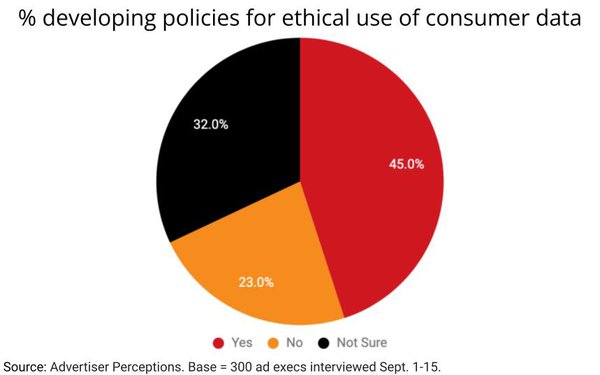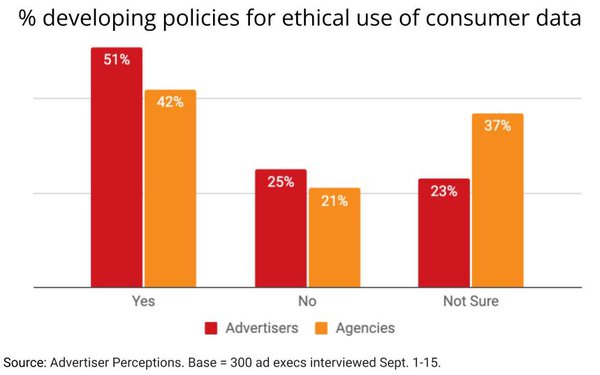
When WPP's GroupM unveiled a new data ethics tool earlier this year, it raised questions
about what others were doing to create tools, guidelines and policies governing the ethical use of consumer data.
To find out, MediaPost teamed with Advertiser Perceptions to field a survey of
advertisers and ad agency executives.
The study, conducted in early September, found that less than half currently have or are planning to develop such policies -- even though the potential
for liabilities continues to grow.
More than half said they have no plans (23%) or are not sure if they will (32%).
Interestingly, ad agency executives were far more uncertain than
their advertiser counterparts: 37% of agency execs said they were unsure, while only 23% of advertisers said so.
Also, more than half of clients said they currently have or are in the process
of developing policies for the ethical use of consumer data, while only 42% of agencies said so.

advertisement
advertisement